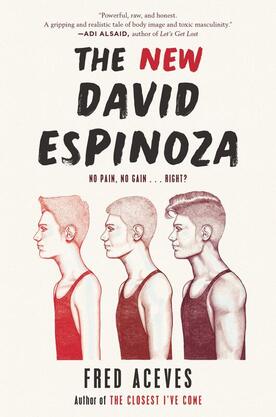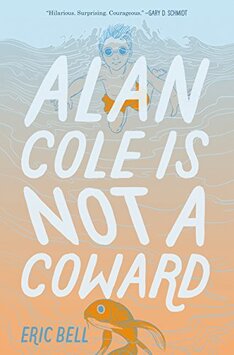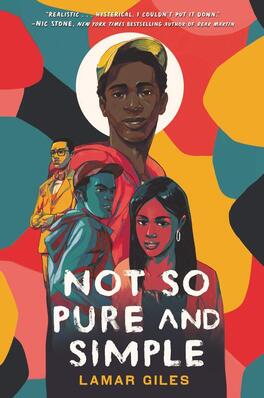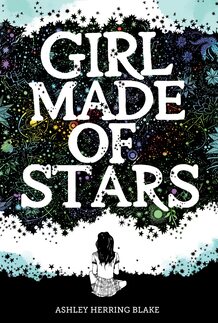| Roy Jackson is a PhD candidate at the University of Pittsburgh in Information Sciences researching LGBTQIA+ book banning in Pennsylvania. In his spare time he enjoys hiking and traveling with his husband. Erinn Bentley is a Professor and Program Coordinator of English education at Columbus State University, where she mentors pre-service teachers and leads study abroad programs. In her spare time, she enjoys spending time with her family and traveling. |
One such topic that seems of utmost importance to explore is specific to the population these bills are seemingly trying to protect. That topic is toxic masculinity. At its most basic definition, toxic masculinity can be described as cultural pressures for boys and men to behave in a certain way. Those ways are negative. They harm themselves and others. They increase behaviors like bullying, homophobia, sexism, and racism. However, there are vast ways to present alternatives to the negativity of toxic masculinity. One way is through literature. The following books approach the topic of toxic masculinity in varied ways. They explore the root causes of them and are teaching tools to uncomfortable conversations that can lead to extraordinary positive change.

In The New David, Aceves’ protagonist is routinely bullied for his slim physique. This impacts his mental health and ability to accept himself. He is physically assaulted, regularly verbally harassed, and shamed on social media by his bully. He vows to get bigger over the summer after junior year only to fall into a group of men who are injecting illegal steroids. David begins his addiction to the gym and the drugs with the hopes of senior year starting out with revenge. But that fantasy never comes to fruition. Instead, he is shamed again by his bully who outs him for his illegal drug use and harassed and shamed on social media for this.
The novel explores layers of toxic masculinity that prey on young men. It isn’t just about what it means to not only be a man, but what a man should look like. David cannot accept himself physically. When he erroneously believes getting bigger muscles will solve his problems, the steroids come with a side effect in the form of physical violence not only to his enemy but to his family. The violence is a repetition of the toxic masculinity on an extreme level that he once faced from his bully.
The root cause of David’s toxic masculinity isn’t familial as often the case. His father is caring and supportive. Instead, it is akin to media portrayals of the male physique. It causes eating disorders and unhealthy life choices. David sees his appearance as the most important aspect to combat the abuse he endures. He doesn’t seek out adults in school or at home for help. That may be because he doesn’t see that as an option. He won’t tell anyone about the abuse as it is seen as not masculine to tell. As educators, we can meet the needs of students like David in a variety of ways and this book opens our eyes as adults to what may be lurking in the minds of young men.

Alan Cole Is Not A Coward by Eric Bell
Alan Cole’s life is one of generational toxic masculinity. Alan’s father forces his sons to lie at his company dinner to make an appearance in hopes of them making him look good. An artist, Alan must hide that and instead pretend to play sports and be a real boy. The father treats his mother in a dominating, unloving manner. His older brother abuses him physically and mentally, engaging him in dangerous games he doesn’t want to play. But Alan is gay, and his brother uses that information to torment him and get him to do things he shouldn’t. The novel ends with Alan outing himself and finding self-acceptance.
Bell has crafted a very important example of generational toxic masculinity. Alan’s older brother is humiliated and abused by his father, and feeling powerless, takes his abuse out on Alan. Bell shows how the power of generational influence passes toxic masculinity down from father to son, and brother to brother. As an educator, Bell presents small scenes with teachers that are powerful. Using a parent-teacher conference, Bell constructs a scene where a teacher can be an ally to their student. It is a small, but powerful moment that resonates.

Poignant, and at times hilarious, this novel may be lighthearted, but Giles’ commentary on toxic masculinity is serious. In pursuit of his childhood crush, Del accidentally joins his church’s Purity Pledge group. He simultaneously enrolls in his high school’s sex education course and becomes increasingly confused with the two group’s mixed messages. Meanwhile, his peers cause a commotion when 9 girls become pregnant at the same time. As the novel progresses, Del must face the fact that he may not be the “good guy” he thinks he is and confront his past and present treatment of the females in his life, ultimately leading to a redemptive end to this narrative.
Giles does a wonderful job capturing teenage uncertainty when it comes to sex itself, hormones and the embarrassing ways they manifest among teens, sex eduation, and what “it means” to be a certain kind of boy or girl. This novel explicitly addresses the slut-shaming that often happens to females and acknowledges that males are revered for their sexual activty. One such scene portrays Del’s father, who admits to his role in perpetuating masculine toxicity. He says, “‘Junior. It’s not all your fault, because I’ve been encouraging you in a way my father and my uncles and a bunch of other guys I looked up to encouraged me…like it’s a rite of passage. ‘Go get the girl..’” (Giles, 339). Del is, in spite of his bravado, a virgin, which spins the plot into interesting directions.
Overall, the characters and situations are relatable and realistic. Some of these situations are awkward, but the humor throughout makes this a good text to dig into toxic masculinity, evangelical Christianity and sex education, and overall adolescent identity development .

Blake’s novel takes the messiness of toxic masculinity and ramps up the chaos and messiness of it even more. The protagonist, Mara, is a twin whose brother is accused of rape. Through her eyes, readers see how seemingly liberal, well-intentioned parents immediately fall into the trap of the male trope to support their son. The school seemingly doesn’t address the issue at all, even though it appears to be a school where SEL would be the normed, yet when the student who is raped comes back to school, she is met with vile shaming and words. Blake’s novel isn’t clear and easy regarding outcomes, but the chaos that envelopes the novel is perhaps the most real regarding just how toxic American masculinity is.
Not an easy read, this novel shows how difficult it can be for victims of assault to tell their stories, especially when one is attacked by a person one trusts and, perhaps, loves. It also shows how “the system” - whether legal, familial, and/or educational - can fail victims by not bringing about justice or providing them with support. Mara’s shattered relationship with her brother prompts readers to consider just how well any of us can truly know the people we care the most about in our lives. In spite of all the painful and messy topics explored, this novel is written with tenderness and offers moments of hope and glimpses of self-discovery.



 RSS Feed
RSS Feed